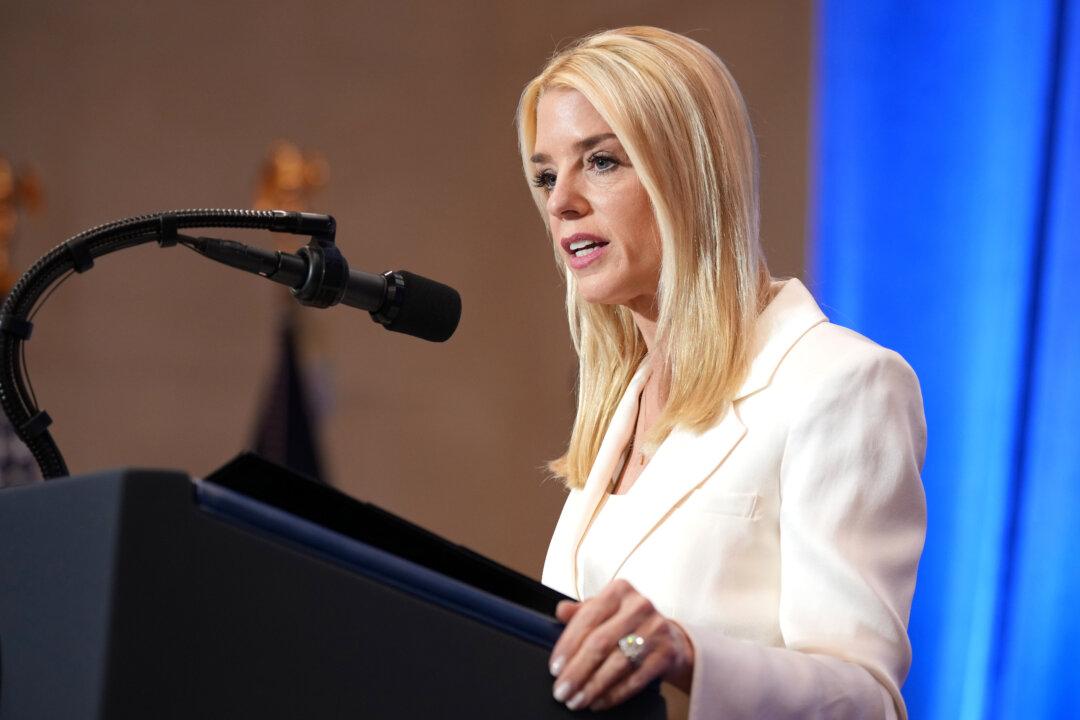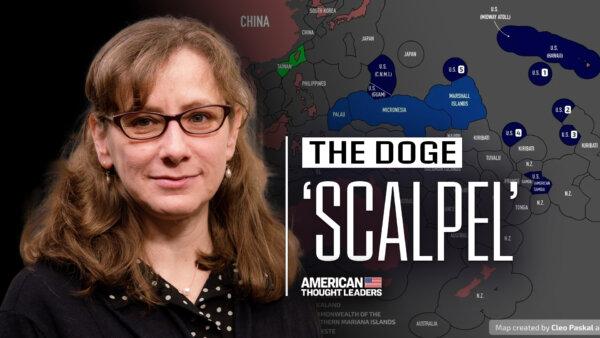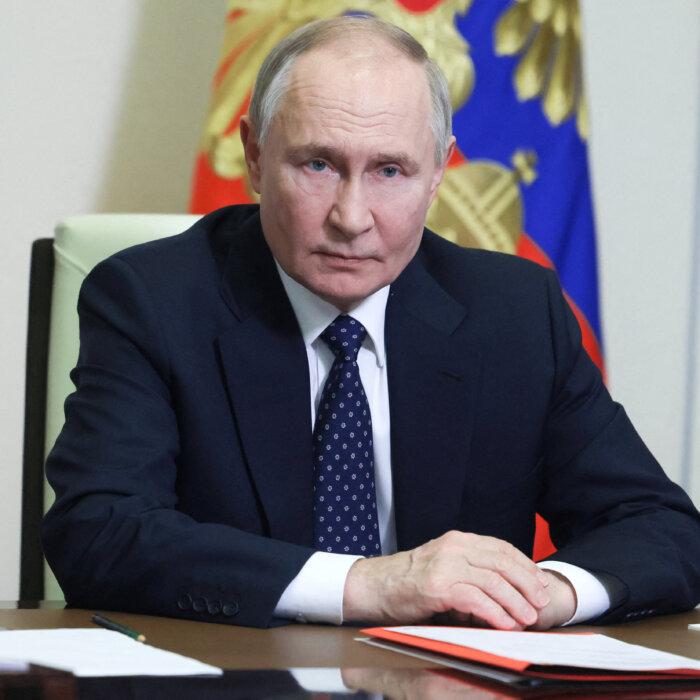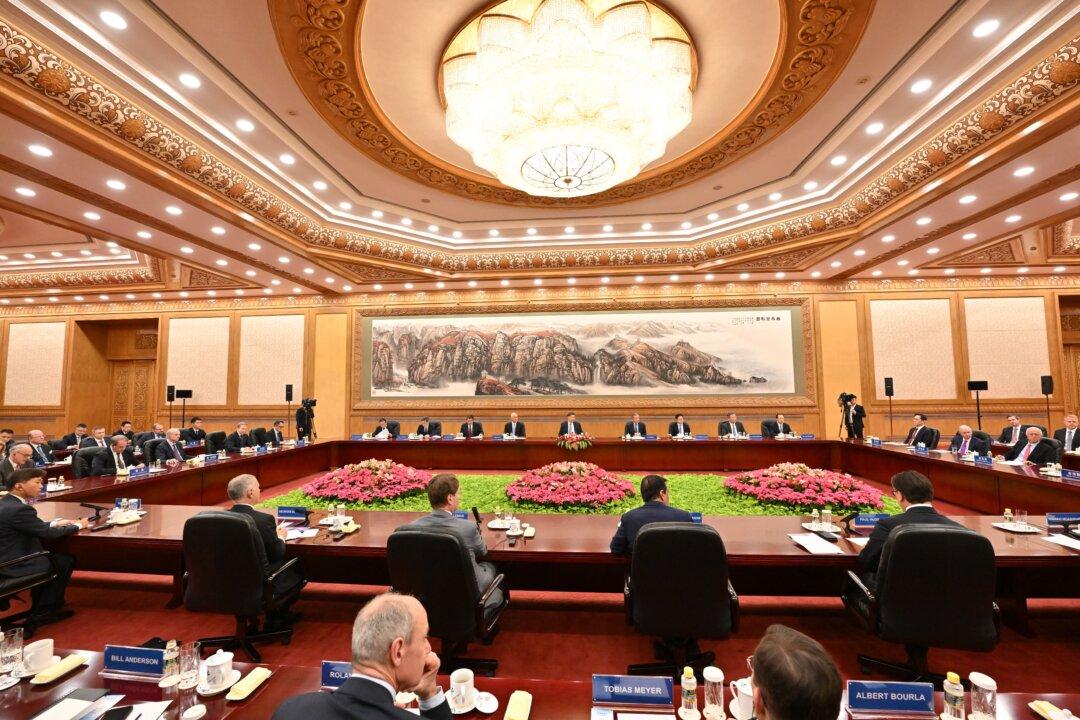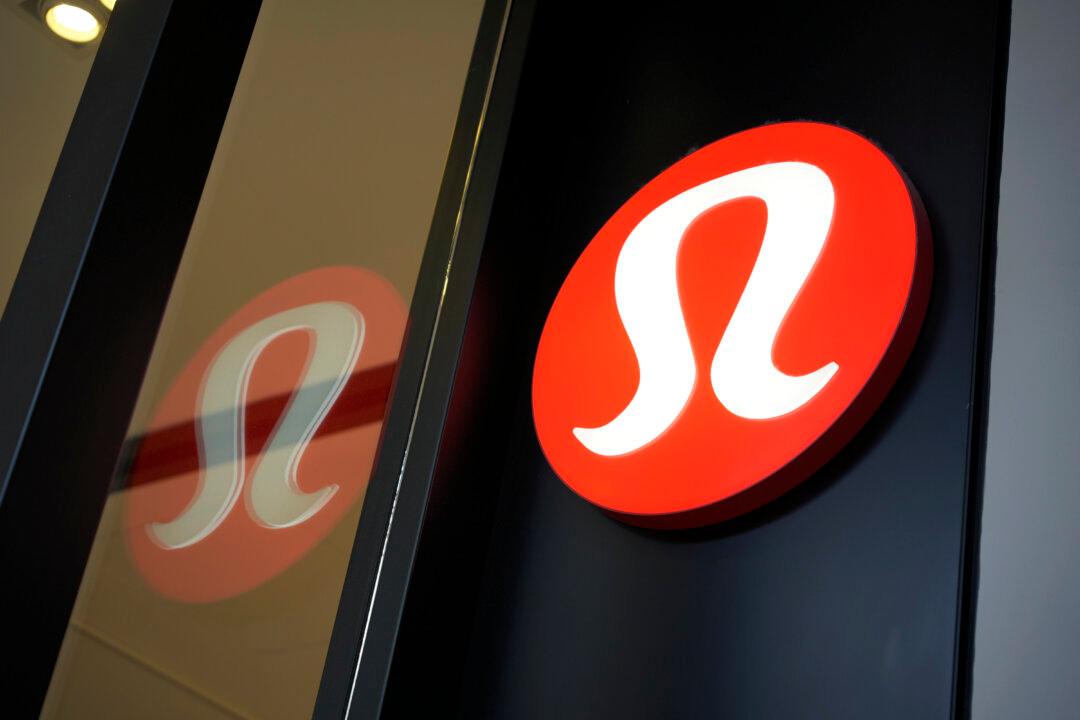Trump Says US ‘Will Be Helping’ as Burma Quake Deaths Pass 1,000
The State Department said that cuts to USAID have had no impact on the U.S. ability to assist with disaster response.

Adolph Sutro: The King of San Francisco
In this installment of ‘Profiles in History,’ we meet a Prussian immigrant who made a fortune at the Comstock Lode and helps transform San Francisco.

‘I Am Living Proof’: Wonderful Documentary about Miraculous Healing
Having personally witnessed faith heal stage-4 cancer and ‘incurable’ ALS (Lou Gehrig’s disease), this fine documentary is proof that I’m not the only one.

Before the Hot Flashes Appear: What Every Woman Needs to Know
Written by a postmenopausal woman, this book addresses the many impacts of menopause, as well as a variety of conventional and holistic ways to treat them.
Most Read
Top Stories
Three-Quarters of US Scientists in Nature Poll Consider Leaving the Country
According to a new survey, cuts to federal research funding have led many researchers to explore opportunities abroad.
We Went to Thomas Massie’s District. Here’s How They Feel About His ‘No’ Vote on Funding.
Kentucky’s liberty-minded, MIT-educated congressman has some local foes—but supporters, and even some protégés, are easier to find on the ground.
Trump Inks $100 Million Deal With Skadden Law Firm
The firm will provide pro bono legal services in support of veterans and other public servants.
Musk Responds to Concerns About Conflicts of Interest
‘My companies are suffering because I’m in the government,’ the Tesla CEO says.
Appeals Court Allows DOGE to Continue to Downsize USAID
The new ruling suspended a Maryland federal judge’s order to block the Trump administration’s efforts to pare down USAID operations.
Musk’s AI Startup Buys Social Media Platform X in $45 Billion Deal
The Elon Musk-owned social media platform X has been bought by xAI, Musk’s artificial intelligence company.
Musk Sued by Wisconsin AG Over $1 Million Giveaways
Wisconsin’s top law enforcement official has sued Elon Musk over alleged voter bribery tied to million-dollar giveaways ahead of a key state Supreme Court race.
Over 1,500 Shen Yun Performers and Family Members Call for Investigation of CCP Influence Targeting the Arts Group
The CCP in recent years has stepped up its sabotage campaign against the performing arts company, representatives said at a Lincoln Center press conference.
▶Shen Yun Inspires During Final Show at Its First Canadian Tour Stop
Shen Yun Performing Arts astounded audiences in Mississauga, Canada, on March 25, where City Councillor Stephen Dasko congratulated Shen Yun Performing Arts.
Trump to Impose Pharma Levies Soon, Says Open to Deals on Tariffs
The president says many countries are interested in making deals in response to his reciprocal tariff proposal.
Russia Seeks to Balance Ties With US, China: Official
Russian Deputy Prime Minister Alexey Overchuk says that Moscow would seek to balance its relationship between Washington and Beijing.
Long Hidden Spy Chief Testimony Uncovered in National Archives
Counterintelligence spy chief James Angleton’s testimony to the Church Committee was uncovered by The Epoch Times hours after declassification.
Day in Photos: Pete Hegseth Visits Philippines, Earthquake in Burma, and JD Vance in Greenland
A look into the world through the lens of photography.
The Untold Story of Benzodiazepine Dependency
Millions take benzodiazepines as prescribed, unaware that dependence can begin within weeks—trapping them between use and withdrawal.
Judge Orders Trump Admin to Halt CFPB Shutdown, Reinstate Employees
Judge Amy Berman Jackson said that court intervention was ‘extraordinary’ but necessary and that the administration disregarded Congress’s intent.
Tracking Trump’s High Level Appointments, Senate Confirmations
The Senate is undertaking the confirmation process for the president’s new administration.
Zelenskyy Says Ukraine Won’t Treat US Aid as Loans, Will Review New Minerals Deal
Kyiv won’t treat U.S. aid as debt and is still assessing Washington’s latest minerals agreement proposal, the Ukrainian president says.
Mississippi Governor Signs Law Phasing Out Individual Income Tax
The new legislation cuts the individual income tax rate to 3 percent by 2030. After that, it will decrease every year until it is eliminated.
Appeals Court Allows Trump to Remove 2 Agency Heads
Judge Justin Walker said the administration was likely to succeed in its argument that laws limiting such removal by the U.S. president were unconstitutional.
Learn as You Grow: What Every Beginner Gardener Should Know
Here’s a secret: It’s easier than you think. A lifelong gardener shares how—and why—to get started.
Special Coverage
Special Coverage



















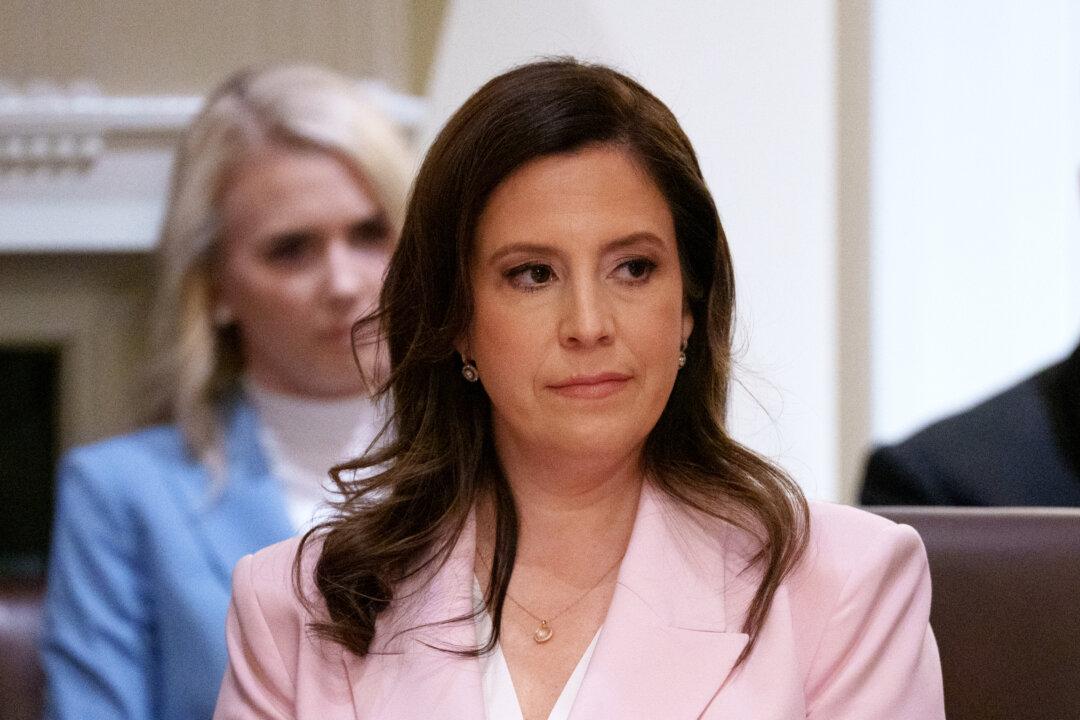



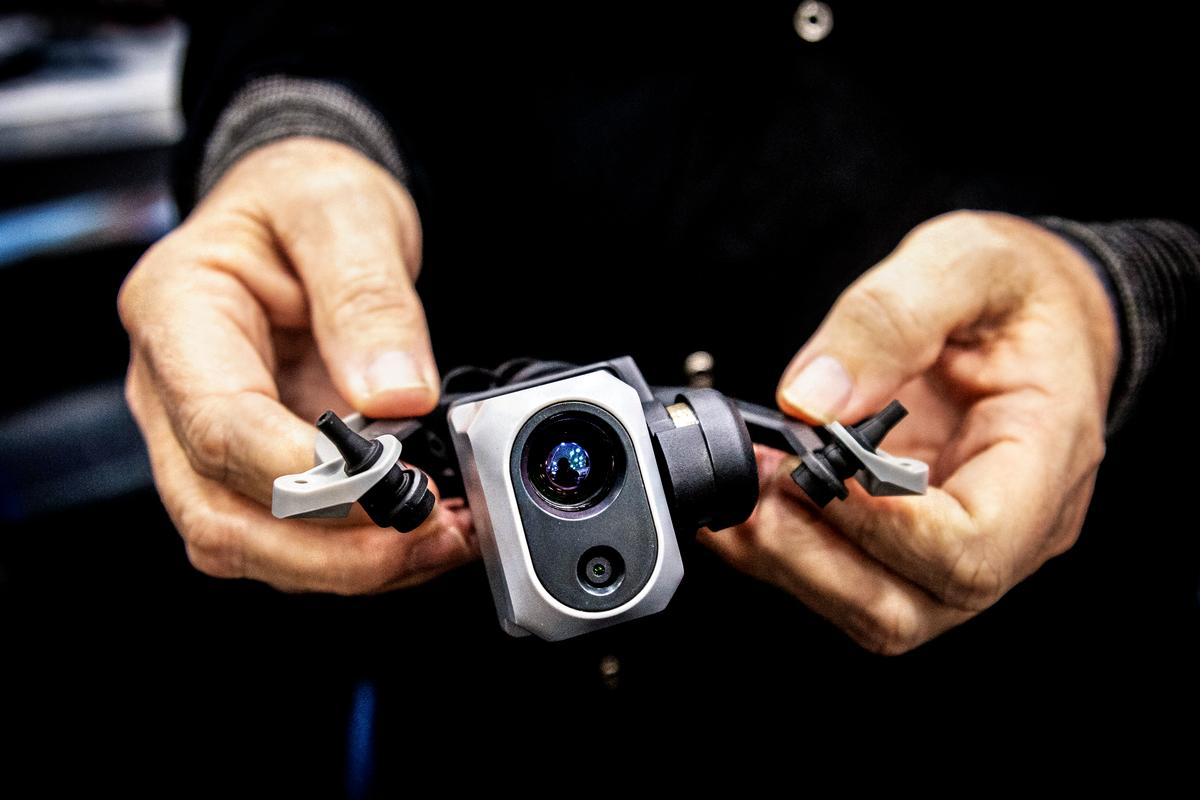

















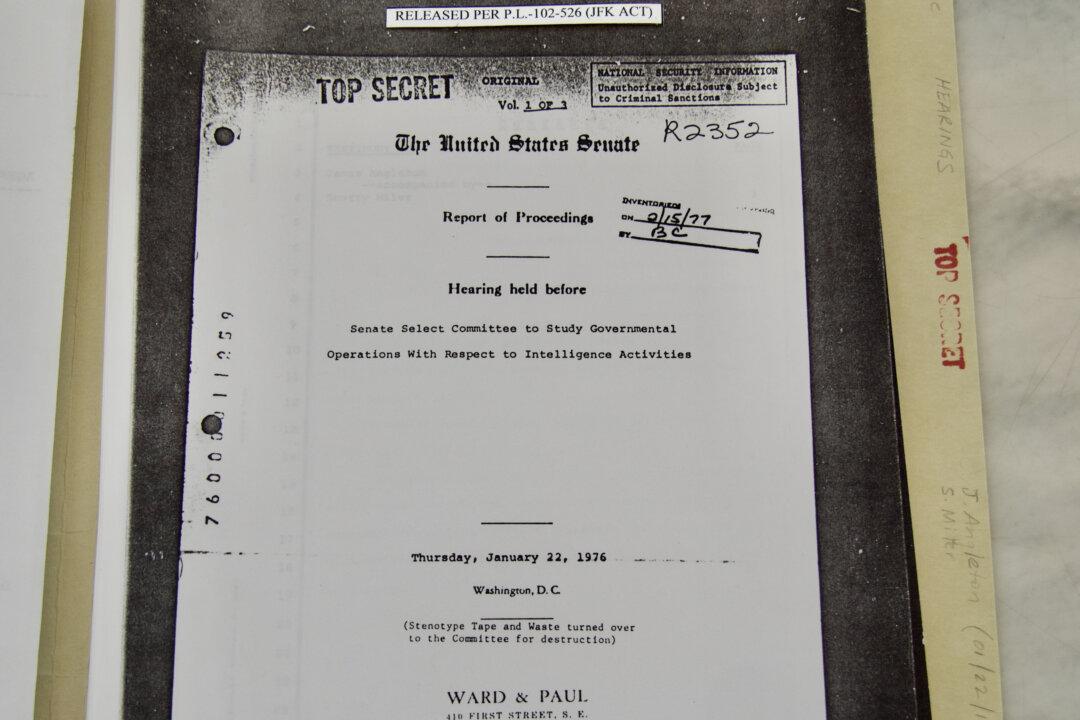



















![[PREMIERING 3/29, 9PM ET] How to End the War in Gaza: Netanyahu Adviser Caroline Glick](https://www.theepochtimes.com/_next/image?url=https%3A%2F%2Fimg.theepochtimes.com%2Fassets%2Fuploads%2F2025%2F03%2F29%2Fid5833407-250328-ATL_Caroline-Glick_HD_TN-600x338.jpg&w=1200&q=75)

![[PREMIERE 03/29 at 10:30AM] Pastor Gennadiy Mokhnenko on Helping Soldiers Find Faith on the Frontlines of the Russia–Ukraine Conflict](https://www.theepochtimes.com/_next/image?url=https%3A%2F%2Fimg.theepochtimes.com%2Fassets%2Fuploads%2F2025%2F03%2F28%2Fid5833108-interview_Pastor-Gennadiy-Mokhnenko_REC-600x338.jpg&w=1200&q=75)





